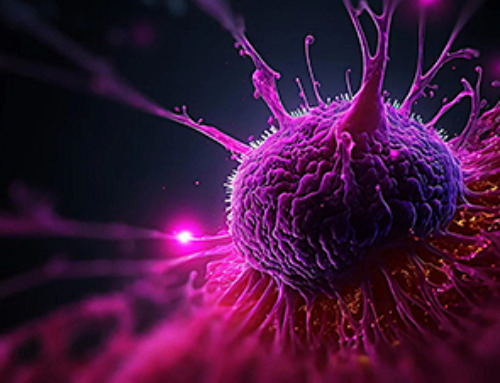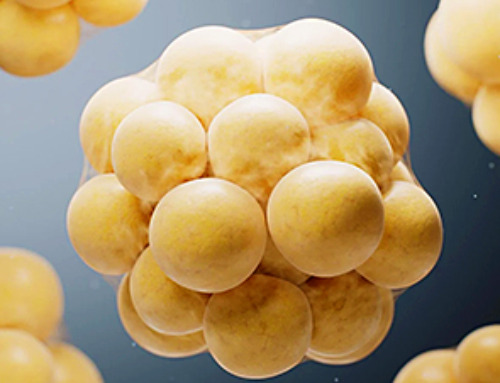A Copenhagen team has unlocked a clever "backdoor" into studying rare quantum states once thought beyond reach.
Scientists at the Niels Bohr Institute, University of Copenhagen, have discovered a new approach for investigating rare quantum states that occur within superconducting vortices. These states were first proposed in the 1960s, but confirming their existence has proven extremely challenging because they occur at energy levels too small for most experiments to detect directly.
This breakthrough was achieved through a mix of creative problem-solving and the advanced development of custom-made materials in the Niels Bohr Institute's laboratories. The research findings have been published in Physical Review Letters.
Synthetic superconducting vortices – finding a "backdoor."
Instead of trying to observe the elusive states in their original setting, the researchers, led by a professor at the Niels Bohr Institute, Saulius Vaitiekėnas, built a completely new material system that mimics the conditions.
Like using a clever backdoor, they bypassed the original limitations by designing a tiny superconducting cylinder and applying magnetic flux to recreate the essential physics.

" This setup allows us to study the same quantum states, but on our own terms," says Saulius. "By designing the platform ourselves, we dictate the rules."
Studying the elusive states is basic research – but where does it lead?
In a growing and very competitive research landscape in quantum, this work demonstrates the versatility of the semiconductor–superconductor platform to realize and study new types of quantum states.
And the semiconductor-superconductor platform in itself is actually also a Copenhagen innovation from about a decade ago.
"We actually came across these states serendipitously—like many scientific discoveries. But once we understood what we were looking at, we realized it was more than a curiosity. It turns out that they could be useful for building hybrid quantum simulators, which are needed to study and understand complex future materials," Saulius explains.
Reference: "Caroli–de Gennes–Matricon Analogs in Full-Shell Hybrid Nanowires" by M. T. Deng, Carlos Payá, Pablo San-Jose, Elsa Prada, C. M. Marcus and S. Vaitiekėnas, 22 May 2025, Physical Review Letters.
DOI: 10.1103/PhysRevLett.134.206302
News
Deadly Pancreatic Cancer Found To “Wire Itself” Into the Body’s Nerves
A newly discovered link between pancreatic cancer and neural signaling reveals a promising drug target that slows tumor growth by blocking glutamate uptake. Pancreatic cancer is among the most deadly cancers, and scientists are [...]
This Simple Brain Exercise May Protect Against Dementia for 20 Years
A long-running study following thousands of older adults suggests that a relatively brief period of targeted brain training may have effects that last decades. Starting in the late 1990s, close to 3,000 older adults [...]
Scientists Crack a 50-Year Tissue Mystery With Major Cancer Implications
Researchers have resolved a 50-year-old scientific mystery by identifying the molecular mechanism that allows tissues to regenerate after severe damage. The discovery could help guide future treatments aimed at reducing the risk of cancer [...]
This New Blood Test Can Detect Cancer Before Tumors Appear
A new CRISPR-powered light sensor can detect the faintest whispers of cancer in a single drop of blood. Scientists have created an advanced light-based sensor capable of identifying extremely small amounts of cancer biomarkers [...]
Blindness Breakthrough? This Snail Regrows Eyes in 30 Days
A snail that regrows its eyes may hold the genetic clues to restoring human sight. Human eyes are intricate organs that cannot regrow once damaged. Surprisingly, they share key structural features with the eyes [...]
This Is Why the Same Virus Hits People So Differently
Scientists have mapped how genetics and life experiences leave lasting epigenetic marks on immune cells. The discovery helps explain why people respond so differently to the same infections and could lead to more personalized [...]
Rejuvenating neurons restores learning and memory in mice
EPFL scientists report that briefly switching on three “reprogramming” genes in a small set of memory-trace neurons restored memory in aged mice and in mouse models of Alzheimer’s disease to level of healthy young [...]
New book from Nanoappsmedical Inc. – Global Health Care Equivalency
A new book by Frank Boehm, NanoappsMedical Inc. Founder. This groundbreaking volume explores the vision of a Global Health Care Equivalency (GHCE) system powered by artificial intelligence and quantum computing technologies, operating on secure [...]
New Molecule Blocks Deadliest Brain Cancer at Its Genetic Root
Researchers have identified a molecule that disrupts a critical gene in glioblastoma. Scientists at the UVA Comprehensive Cancer Center say they have found a small molecule that can shut down a gene tied to glioblastoma, a [...]
Scientists Finally Solve a 30-Year-Old Cancer Mystery Hidden in Rye Pollen
Nearly 30 years after rye pollen molecules were shown to slow tumor growth in animals, scientists have finally determined their exact three-dimensional structures. Nearly 30 years ago, researchers noticed something surprising in rye pollen: [...]
NanoMedical Brain/Cloud Interface – Explorations and Implications. A new book from Frank Boehm
New book from Frank Boehm, NanoappsMedical Inc Founder: This book explores the future hypothetical possibility that the cerebral cortex of the human brain might be seamlessly, safely, and securely connected with the Cloud via [...]
How lipid nanoparticles carrying vaccines release their cargo
A study from FAU has shown that lipid nanoparticles restructure their membrane significantly after being absorbed into a cell and ending up in an acidic environment. Vaccines and other medicines are often packed in [...]
New book from NanoappsMedical Inc – Molecular Manufacturing: The Future of Nanomedicine
This book explores the revolutionary potential of atomically precise manufacturing technologies to transform global healthcare, as well as practically every other sector across society. This forward-thinking volume examines how envisaged Factory@Home systems might enable the cost-effective [...]
A Virus Designed in the Lab Could Help Defeat Antibiotic Resistance
Scientists can now design bacteria-killing viruses from DNA, opening a faster path to fighting superbugs. Bacteriophages have been used as treatments for bacterial infections for more than a century. Interest in these viruses is rising [...]
Sleep Deprivation Triggers a Strange Brain Cleanup
When you don’t sleep enough, your brain may clean itself at the exact moment you need it to think. Most people recognize the sensation. After a night of inadequate sleep, staying focused becomes harder [...]
Lab-grown corticospinal neurons offer new models for ALS and spinal injuries
Researchers have developed a way to grow a highly specialized subset of brain nerve cells that are involved in motor neuron disease and damaged in spinal injuries. Their study, published today in eLife as the final [...]





















